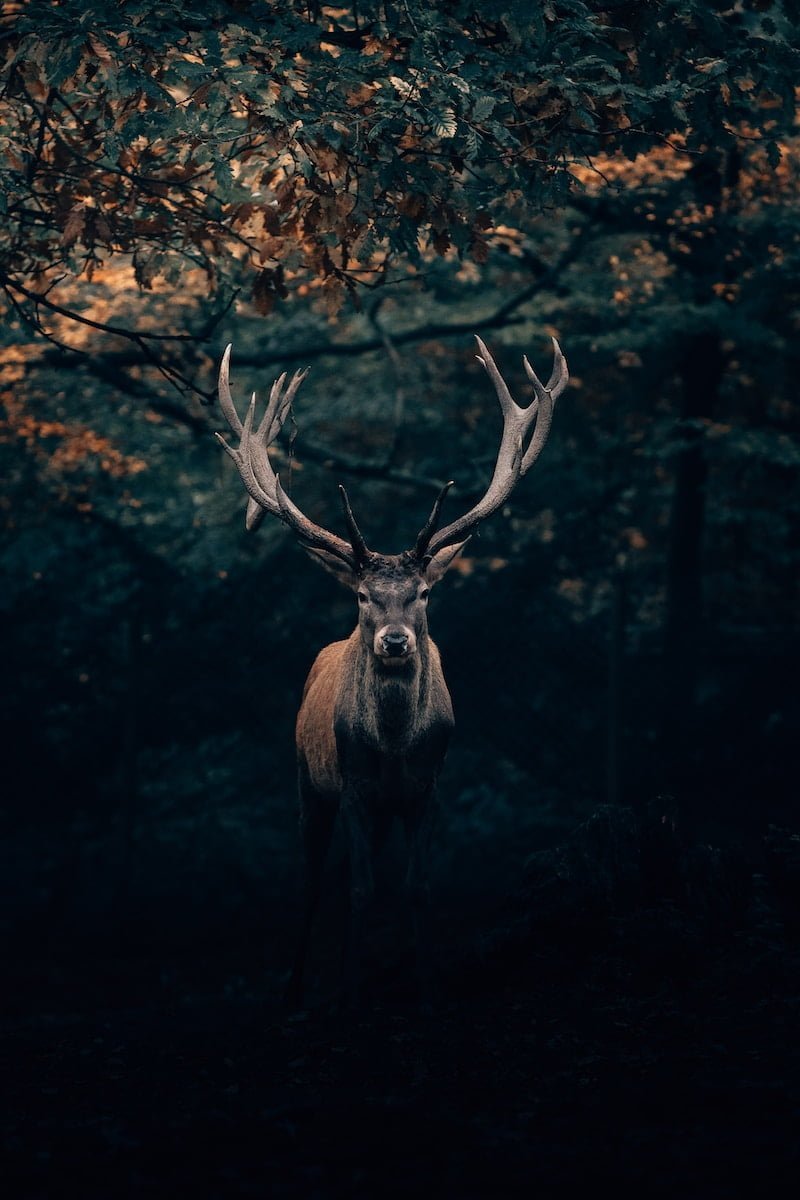
Kuinka riistanhoitajat edistävät upeaa taloa vuonna 2024
Riistanhoitajat ovat ammattilaisia, jotka ovat vastuussa hallinta ja luonnonvaraisten eläinten elinympäristöjen ylläpito, erityisesti riistalajien osalta. Niiden ensisijainen tehtävä on varmistaa riistaeläinten ja lintujen selviytyminen ja suojelu, usein sisällä yksityiset kiinteistöt tai suuria puistoja. Heidän tehtäviinsä voivat kuulua villieläinpopulaatioiden seuranta, elinympäristön hoito, petoeläinten hallinta ja eläinlääkärin hoito. He myös valvovat metsästyslakeja ja määräyksiä, joilla varmistetaan, että riistalajeja metsästetään kestävästi ja laillisesti. Riistanhoitajat niillä on ratkaiseva rooli suojelutoimissa, sillä ne auttavat säilyttämään biologisen monimuotoisuuden ja terveiden ekosysteemien.
Kuinka riistanhoitajat edistävät upeaa taloa
Pelinvartijat, jotka usein jätetään huomiotta, ovat keskeisessä asemassa upean talon ylläpidossa ja parantamisessa. Vaikka ne eivät aina ole näkyvissä, niiden panokset ovat olennainen osa kiinteistön sujuvaa toimintaa, mikä varmistaa, että talo ja sitä ympäröivät maat pysyvät koskemattomassa kunnossa.
Perinteisesti riistanhoitajat vastasivat tilalla olevien riistalajien hoidosta ja suojelusta. Heidän tehtäviinsä kuuluivat riistalintujen kasvattaminen ja vapauttaminen, petoeläinten hallinta ja elinympäristöjen ylläpitäminen. Nykyaikaisessa kontekstissa riistanvartijan rooli on kuitenkin kehittynyt kattamaan laajemman joukon vastuita, mikä tekee niistä välttämättömiä suuren talon ylläpidolle.
Yksi riistanvartijoiden tärkeimmistä panostuksista on taloa ympäröivän luonnonympäristön säilyttäminen. He hoitavat kartanon metsiä, peltoja ja vesistöjä ja varmistavat näiden luonnonvarojen kestävän säilymisen. Tämä sisältää kasviston ja eläimistön suojelun sekä toimenpiteiden toteuttamisen luonnon monimuotoisuuden lisäämiseksi. Näin riistanhoitajat auttavat luomaan harmonisen tasapainon talon ja sen luonnollisen ympäristön välille, mikä edistää kiinteistön yleistä esteettistä vetovoimaa.
Ympäristövastuunsa lisäksi riistanvartijoilla on keskeinen rooli kiinteistön turvallisuuden varmistamisessa. Ne ovat usein ensimmäinen suoja mahdollisia uhkia vastaan, olivatpa ne sitten ihmisiä tai petoeläimiä. Heidän intiimi tuntemuksensa kartanon pohjaratkaisusta ja valppaus alueen partioinnissa edistävät merkittävästi talon ja sen asukkaiden turvallisuutta.
Lisäksi riistanhoitajat osallistuvat kartanon tarjoamaan virkistystoimintaan. He hallinnoivat riistapopulaatioita metsästystä, kalastusta ja lintujen tarkkailua varten varmistaen, että talon asukkaat ja vieraat voivat nauttia näistä toiminnoista. Heidän asiantuntemuksensa näillä alueilla ei ainoastaan lisää kiinteistön virkistystarjontaa, vaan lisää myös sen mainetta ulkoilukohteena.
Riistanhoitajan rooli ulottuu myös kiinteistön infrastruktuurin ylläpitoon. He vastaavat aitojen, porttien ja muiden kiinteistön toiminnan kannalta olennaisten rakenteiden kunnossapidosta. Heidän työnsä tällä alueella varmistaa, että kiinteistön infrastruktuuri pysyy hyvässä kunnossa, mikä estää kalliita korjauksia ja edistää talon yleistä pitkäikäisyyttä.
Lopuksi, riistanvartijoilla on tärkeä rooli kartanon asukkaiden ja vierailijoiden kouluttamisessa ja tietoisuuden lisäämisessä. Ne tarjoavat arvokkaita näkemyksiä kartanon villieläimistä ja luonnollisista piirteistä, edistävät ympäristön arvostusta ja edistävät vastuullista käyttäytymistä. Tämä koulutusrooli lisää kartanolla vierailevien kokemuksia ja edistää laajempaa ympäristönsuojelun tavoitetta.
Riistanvartijan rooli upeassa talossa on monipuolinen ja välttämätön. Heidän panoksensa luonnonympäristön säilyttämiseen, kiinteistön turvallisuuteen, virkistysmahdollisuuksien tarjoamiseen, infrastruktuurin ylläpitoon sekä asukkaiden ja vierailijoiden koulutukseen ovat kaikki ratkaisevan tärkeitä upean talon toimivuuden ja houkuttelevuuden kannalta. Huolimatta usein kulissien takana olevasta roolistaan, pelinvartijat ovat suuren talon laulamattomia sankareita, jotka varmistavat sen sujuvan toiminnan ja edistävät merkittävästi sen mahtavuutta.
Pelinvartijoiden evoluutio: Downtonin aikakaudesta nykyaikaan
Pelinvartijat, termi, joka saattaa herättää mielikuvia tweedissä pukeutuneista miehistä partioimassa Downton Abbeyn laajoilla tiloilla, on rikas ja tarinallinen historia, joka ulottuu paljon suosittujen televisiodraamien rajojen ulkopuolelle. Niiden rooli, joka on kehittynyt merkittävästi vuosisatojen aikana, on edelleen olennainen osa villieläinten ja elinympäristöjen hallintaa ja säilyttämistä.
Downton Abbeyn aikakaudella riistanhoitajat olivat ensisijaisesti vastuussa riistalajien, kuten fasaanien ja peurojen, hoidosta suurilla tiloilla. Heidän tehtäviinsä kuuluivat riistan jalostus ja kasvatus, petoeläinten hallinta ja elinympäristöjen ylläpitäminen. Heidän tehtävänä oli myös järjestää ja valvoa kartanon omistajien ja vieraiden metsästysjuhlia. Riistanhoitajan rooli oli arvostettu, usein sukupolvelta toiselle siirtynyt, ja heitä pidettiin olennaisena osana maaseutuyhteisöä.
Riistanvartijan rooli alkoi kuitenkin muuttua 1900-luvulla, mikä johtui suurelta osin yhteiskunnan asenteiden muutoksista metsästystä ja luonnonsuojelua kohtaan. Suurtilojen väheneminen, lisääntyvä kaupungistuminen ja maankäytön muutokset vaikuttivat myös tähän kehitykseen. Tämän seurauksena perinteisen riistanhoitajan rooli alkoi pienentyä ja syntyi uusi riistanhoitajarotu, joka keskittyi enemmän suojeluun ja elinympäristön hoitoon.
Nykyaikana luonnonsuojeluorganisaatiot, valtion virastot ja yksityiset maanomistajat palkkaavat usein riistanhoitajia. Heidän roolinsa on laajentunut käsittämään laajemman lajivalikoiman hallinnan, ei vain riistaa. He ovat vastuussa biologisen monimuotoisuuden ylläpitämisestä ja lisäämisestä, erilaisten villieläinten elinympäristöjen hoidosta sekä haitallisten lajien seurannasta ja hallinnasta. Heillä on myös keskeinen rooli valistaessa yleisöä villieläimistä ja suojelukysymyksistä.
Näistä muutoksista huolimatta jotkut pelinvartijan roolista ovat pysyneet muuttumattomina. He vaativat edelleen syvällistä ymmärrystä villieläimistä ja niiden elinympäristöistä sekä käytännön taitoja, kuten elinympäristön hallintaa ja petoeläinten hallintaa. He jatkavat myös tiivistä yhteistyötä maanomistajien ja muiden sidosryhmien kanssa varmistaakseen luonnonvaraisten eläinten kannan kestävän hoidon.
Riistanvartijan roolin kehittyminen heijastaa laajempia muutoksia suhteessamme luontoon. Downton Abbeyn aikakaudella riistaa pidettiin ensisijaisesti metsästyksen resurssina. Nykyään riistanhoito on edelleen tärkeä osa roolia, mutta suojelua ja biologista monimuotoisuutta painotetaan enemmän. Tämä muutos heijastaa kasvavaa tunnustamista villieläinten todellisesta arvosta ja elinympäristöjen säilyttämisen tärkeydestä tuleville sukupolville.
Riistanvartijan rooli on kehittynyt merkittävästi Downton Abbeyn päivistä sopeutuen yhteiskunnan muutoksiin ja ymmärryksemme luonnonmaailmasta. Metsästysseurueiden riistanhoidosta suurilla tiloilla he ovat siirtyneet rooliin, joka kattaa monenlaisia suojelutoimia. Näistä muutoksista huolimatta riistanvartijan syvä yhteys maahan ja villieläimiin on edelleen heidän roolinsa ytimessä. Kun kohtaamme kasvavat ympäristöhaasteet, riistanhoitajien taidot ja tiedot ovat jatkossakin elintärkeitä luonnonvaraisten eläinten ja elinympäristöjemme säilyttämisessä tuleville sukupolville.
Pelinhoidossa on useita muunnelmia:
Stalkerit: pitäjät, jotka ovat erikoistuneet peurojen salaperäiseen takaa-ajoon, pääasiassa Skotlannin ylänköillä.
Alamaan pitäjät: fasaanin ja peltopyyn kasvattaminen ja alankomaiden elinympäristöjen hoito.
Ylämaan vartijat: riekon hoito vuoristoalueilla.
Gillie/joenvartijat: hoitaa jokia, kuten Spey-jokea taimenen ja lohen osalta.
Pelinpito on monimutkainen ammatti, jolla on useita muunnelmia, ainutlaatuisia vastuita ja osaamisalueita. Nämä vaihtelut heijastavat erilaisia elinympäristöjä ja riistalajeja eri alueilla.
Riistanvartijan rooli voi vaihdella suuresti riippuen maantieteellisestä sijainnista ja hänen vastuullaan olevista riistalajeista. Olipa kyseessä peuroja Skotlannin ylängöillä, kasvattava fasaaneja ja peltopyyjä alankoalueilla, hoitaa nummia riekon viljelyssä tai hoitamassa jokia taimenen ja lohen vuoksi, jokainen riistanhoitaja on tärkeässä roolissa villieläinten hoidossa ja suojelussa.
Koulutus
Jotkut Yhdistyneen kuningaskunnan korkeakoulut, mukaan lukien Northern School of Game and Wildlife Newton Riggissä, Cumbriassa, Myerscough Collegessa, Lancashiressa ja SRUC:n Elmwood-kampus Cuparissa, Fife, tarjoa riistanhoitokursseja tutkintotodistustasoon asti. Borders College on Etelä-Skotlannin ensisijainen oppilaitos NC- ja HNC-tasojen saavuttamiseksi riistanhoidossa, kun taas Easton and Otley Collegen Easton Campus tarjoaa tasojen 2 ja 3 pelinpitokursseja.
Scottish Gamekeepers Association (SGA) perustettiin vuonna 1997 edistämään riistanvartijoiden roolia ja kehittämään koulutusta lain ja parhaiden käytäntöjen alalla riistanvartijoiden kielteiseen mediakuvaukseen. SGA:n puheenjohtaja on Alex Hogg, skotlantilainen riistanhoitaja.
Samana vuonna, Kansallinen riistanhoitajajärjestö (NGO) perustettiin samoilla tavoitteilla, sen lisäksi, että se puuttui ensisijaisen ampumayhdistyksen havaittuun riistanvartijoiden aliedustukseen. Noin 15 000 jäsenen kansalaisjärjestö tarjoaa alakohtaista koulutusta riistanhoitajille ja vastasi ensimmäisenä EU:n riistalihahygienialainsäädäntöön hyväksymällä kurssin kokeneille riistanhoitajille ja stalkereille. Se jatkaa pelinhoidon, vainoamisen, ampumisen ja kalastuksen edistämistä puheenjohtajansa Lindsayn johdolla
Usein kysytyt kysymykset
Mikä on Gamekeeperin rooli?
Riistanhoitajan tehtävänä on hallita ja suojella villieläinten elinympäristöjä, torjua tuholaisia ja seurata riistalajien terveyttä. He auttavat usein myös metsästystoiminnan järjestämisessä.
Missä Gamekeepers yleensä työskentelee?
Riistanhoitajat työskentelevät yleensä maalaistaloilla, yksityismailla tai kansallispuistoissa, joissa esiintyy riistalajeja.
Mitä taitoja vaaditaan pelinhoitajaksi?
Riistanhoitajan taitoja ovat villieläinten hoidon tuntemus, käytännön taidot elinympäristön ylläpitoon, hyvä fyysinen kunto ja usein ampuma-asekoulutus.
Mikä on Gamekeeper-ammatin historia?
Riistanhoitajan ammatilla on pitkä historia, ja se juontaa juurensa keskiajalta Euroopassa, jolloin aatelisto käytti heitä hoitamaan riistalajeja metsästystä varten. Rooli on kehittynyt ajan myötä, mutta keskittyy edelleen villieläinten hallintaan ja suojeluun. Riistanhoitajat ovat ratkaisevan tärkeitä luonnonvaraisten eläinten ja elinympäristöjen hallinnassa ja tasapainossa. He ovat vastuussa riistalajien ja niiden elinympäristöjen suojelusta, suojelusta ja hoidosta, usein yksityistiloissa tai maalaispuistoissa. Heidän tehtäviinsä kuuluu villieläinten terveyden seuranta, tuholaisten torjunta ja uhanalaisten lajien turvallisuuden varmistaminen. Huolimatta haasteista, kuten salametsästys ja elinympäristöjen tuhoutuminen, riistanhoitajat edistävät merkittävästi biologista monimuotoisuutta ja ekosysteemien yleistä terveyttä.



